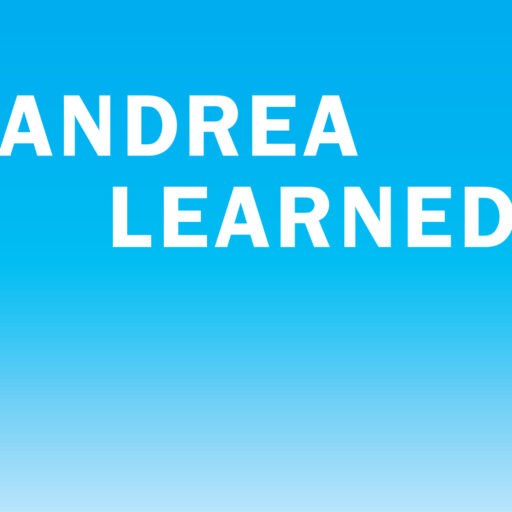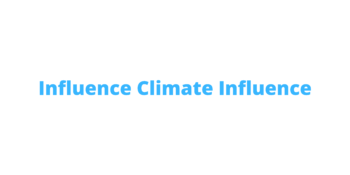“All things being equal” is quite an overused phrase, but there can still be gold in what follows it. Whether it’s a consumer’s evaluation of cleaning products or a way to differentiate potential business consultants, the reasons why one option is chosen over another is especially key in a world of choice gone wild. As a business thought leader, don’t you want “[your name here] is the best choice” to be the end of that “all things being equal” sentence?
I got to thinking about this recently as it relates to Tweetchat guests, conference speakers, podcast interviewees and NPR news (my personal audio feed of choice) story sources. If “all things” are equal, how do certain people become the “go-to” names? How can YOU make sure the knowledge you’ve built and the wisdom you’d like to share as a business thought leader makes the cut in the influential streams for your industry or cause?
Become Easy to Find
You have to make it easy for the conference programmers, podcast hosts and reporters to become aware of your smarts, to put you in the back of their heads and to be able to reach you quickly. The “gatekeeper” of yore (an administrative assistant or communications team member, for example) who shields you from requests and interviews can today be a major detriment. I know this both as someone seeking sources and guests (in my writer and Tweetchat co-host roles) and as someone who has been a media source myself.
As a writer, the more work it takes me to reach and/or research you, the less likely I am to bother. I may have had a great conversation with you at some point and known that you’d have a valuable take on a particular topic, but if you aren’t already, personally accessible in real time – and using social media to fill me in on your latest thinking – I may not contact you. Not only is this about me learning more to write a good post or prepare for a chat, it’s about being able to point my reader to more background and great thinking from YOU.
I feel similarly as a Tweetchat co-host. Martin Brown and I want to spend the time we’ve got together with our chat guests on meaty topics, so that we can deliver real value to an increasingly busy audience for a single hour once a month. That being the case, we have to look for real interaction possibilities between guest and chat participants. This works out very well when the guest is already quite comfortable with the medium and has content to point to online as background for the chat.
On the other hand, as someone who gets asked for thoughts on leadership, sustainability and social media, I am intentional about being pretty easy to find and get to know. I write fairly regularly for my own blog and others, and tend to my Google+, Twitter and LinkedIn feeds. My goal is to have my activity online reflect both my latest thinking and my easy accessibility to interested reporters, conference programmers, and podcast hosts.
For those who claim they have no time to be on all social networks/all the time, it’s worth noting: you can be very selective about which networks you use and how much you are “on.” And, you can manage expectations by curating content in a particular handful of topic areas. Share only what you want to be interviewed about, or what you can have fun Tweetchatting about.
Make Their Jobs Easier
Though whether or not you are active on social media isn’t an absolute deal breaker yet, I’d [strongly] suggest the trend is heading that way. Read the below comments from a few people who are professional great guest and speaker finders, and you’ll see that social media presence is already a differentiator:
Public radio reporter and The Broad Experience podcast host, Ashley Milne Tyte:
I’m very radio-esque about this in that I just want the absolute best person to talk to about my topic. I love it when they have a good social media presence and many followers, but I pick my guests purely on talkability and how well I think they will fit the theme I’m covering.
Hugh Byrne , GreenBiz.com Senior Vice President, Product Development and Marketing:
I agree that when looking at prospective speaker/guest/panelist/etc. for an event, having a significant social media presence can be an important differentiator, particularly when the organizer is hoping to get amplification for that event to a broader audience. While I’ve never seen it as a make or break criteria for our team, it is something that comes up in discussions between our event content and marketing teams.
Jessica Fleuti, NetImpact Conference Director:
A prospective speaker’s social media presence does sometimes factor into our decision making when we are putting together a session for the Net Impact Conference. We host 100+ sessions and 300+ speakers at the conference, so we use social media as a tool to help identify and filter the right experts to speak on the wide range of topics we cover. As well, we’re more likely to think of an expert we already follow online when deciding who to invite for a session.
Get Social BEFORE The Opportunity Arises
I once worked with a client to jumpstart Twitter activity around an established annual conference. It was an incredible gathering of academics and executives on a very hot business topic. What was so fascinating was how much the organizers and I struggled, for the several months we planned and promoted the event, to:
- Find speakers who were actively (and authentically) on Twitter already, who had an engaged following (whether 200 or 10,000 people), and who understood how worth their time it was to engage a bit and raise awareness before, during and after the event.
- Get quick (or any) responses for blog post interviews/stories leading up to the event.
- Create substantial Twitter engagement during the days of the event, given the amazingly substantial topic and caliber of thinkers in the room (both audience and onstage).
While the above were challenges for the event organizers, they also exposed big wasted opportunities for speaker “personal brand” building, for reflecting corporate brand wisdom and for amplifying key industry issues or new research.
The fact is that now is THE time to step into this level of awareness and involvement on social media. We are in the middle of the transition from how things have always been done (closed door, not-nimble communications planning) and how incredible things currently happen through more personal, immediate and human connection (transparency, authenticity).
Your next opportunity may have just now…there it goes…passed you by.
Snooze And Lose (Your Profile)
So few in the business world are really using social media at all, and even fewer understand or feel comfortable with it. That being the case, those who DO dive in now have incredible potential for becoming the first-choice in the minds of conference planners, journalists and many others seeking input from innovative thinkers.
Of course, as an individual business leader hoping to raise your own profile, it would be understandable to be scared of being vulnerable on social channels. But, you really only learn by doing in this world. All the research, thinking and planning – i.e. hemming and hawing – will get you nowhere. Learning to “do” social media is actually similar to learning to ride a bike. As in: Wow! Are you ever surprised by the bliss and accomplishment when you’ve finally jumped on and pedaled even a couple of days in a row!
Here’s the thing: Digital content needs interviewees, speakers and guests to be relevant. YOU could be the person to help feed that engine and become known for the value you contribute. Or, you could be the person with much to offer who stays back, behind the firewall. My advice? Jump right in and get comfortable building trust and managing exactly the social presence that fits your life and work style. Being a savvy “socializer” in your field of expertise makes you the only choice as a source or speaker, “all things being equal.”
This post first published on LinkedIn, November 26, 2014.
Photo thanks to “Roger H. Goun” and licensed under a Creative Commons Attribution License





